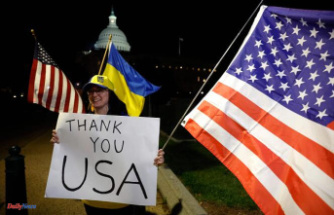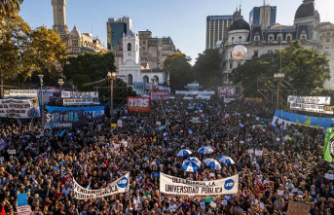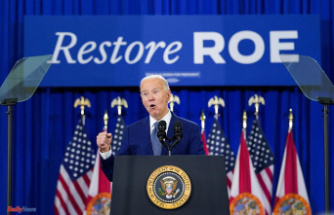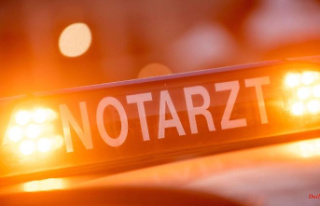It is the regular traffic gridlock in southern Bavaria: Hundreds of thousands of S-Bahn commuters suffer from failures on Munich's main route. And on the autobahn to Austria, trucks are stuck in traffic jams that stretch for miles. For the CSU it is clear who is not doing their homework here.
Munich (dpa / lby) - The CSU accuses the federal government of letting Bavaria down on central transport projects. In view of the explosion in costs and years of delays in the second Munich S-Bahn tube, she is officially calling for clarity on the project from Federal Transport Minister Volker Wissing (FDP).
"It finally needs a clear statement," said CSU General Secretary Martin Huber of the German Press Agency in Munich. "The Federal Minister of Transport must personally make a clear commitment to the second main route."
The billion-dollar project is of great importance for the Munich area and for commuters from all over southern Bavaria, said Huber. "The federal and state governments have jointly agreed that the second regular route should come."
It was only recently announced that the state of Bavaria expects costs to increase to up to 7.2 billion euros instead of the last 3.85 billion. The start of the second central S-Bahn route through downtown Munich could therefore be delayed by almost ten years from 2028 to 2037.
The dispute over the financing agreement with the federal government goes back and forth. Contrary to initial statements from Berlin, the federal government now wants to contribute to the additional costs that are emerging for the second S-Bahn trunk line. This is what it says in a letter from Michael Theurer (FDP), State Secretary in the Federal Ministry of Transport, to the Bundestag Transport Committee, which the dpa has received.
CSU General Secretary Huber criticizes the different statements: "First the Ministry of Transport wants to deduct the costs, but then it agrees to keep its financing commitments." Huber therefore sees Wissing personally as responsible. "We expect a clear commitment from the federal government to the second regular route."
Huber also demanded: "The federal government and the railways must also explain where the cost increases come from." The construction is a joint project by Deutsche Bahn, the Free State, the City of Munich and the federal government, among others.
The main route is the busiest railway line in Europe with around 840,000 S-Bahn passengers per day during the week from Ammersee in the south to Freising in the north of Munich. Due to constant cancellations and delays, the second tunnel tube is to be built.
The CSU General Secretary sharply criticized the fact that a week ago a meeting with Federal Transport Minister Volker Wissing (FDP) was canceled at short notice. "This behavior is arrogant towards the Free State and the people who are waiting for the implementation of the second regular route," said Huber.
There is also trouble in the ongoing dispute over truck traffic from Bavaria via the Inn Valley and the Brenner Pass to Italy. The CSU also accuses the federal government of irresponsibility here. "People in Bavaria are also left alone by the traffic lights at this point," criticized Huber. "A traffic light actually regulates traffic. This traffic light government blocks traffic."
The Inntal route is one of the most important north-south axes in Europe. As a protest and as a measure against the congestion on the Inntal autobahn, Tyrol has repeatedly restricted entry for trucks for years. This year there was block handling on around 40 days. This regularly leads to traffic jams in the Munich area.
Huber demanded: "We expect the federal government to finally put pressure on in Brussels and Vienna: with negotiations and talks, by pushing for infringement proceedings by the EU Commission and, if necessary, with its own lawsuit."
The CSU politician reiterated: "We want a south toll for the entire Brenner route in order to divert traffic over a wide area - supported by Tyrol and South Tyrol. But that too falls on deaf ears in Berlin and Brussels." Huber called on the coalition: "The federal government must live up to its responsibilities."
Bavaria's Prime Minister Söder (CSU) had recently announced counter-actions in the traffic dispute: there should also be conditions on the route in the Free State. On days with block processing, Söder calls for bans on trucks leaving the region's motorways and driving bans on country roads - but that doesn't work without the federal government.












